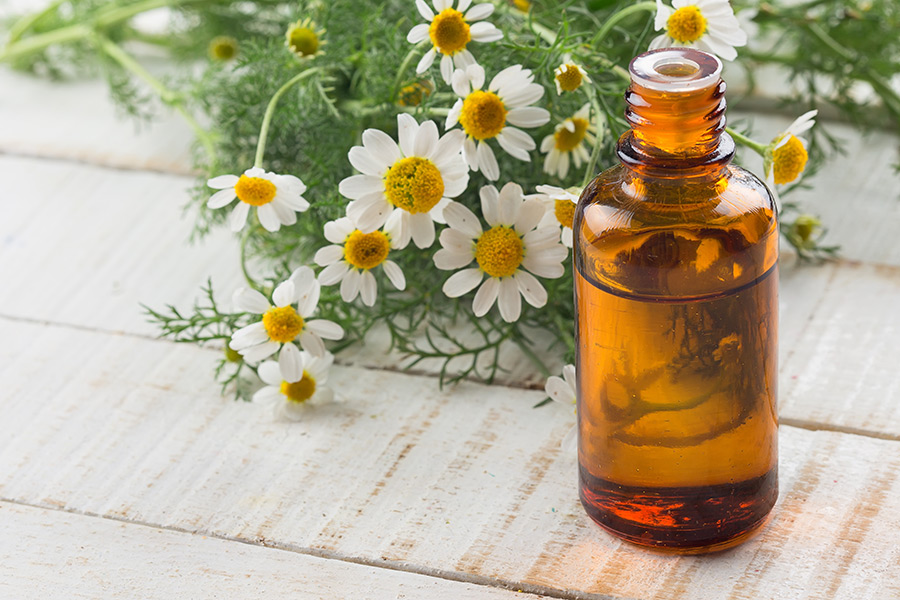
With its agreeable taste and apply scent, camomile makes a comforting tea. A cup of camomile tea at bedtime soothes frayed nerves and promotes sleep. But camomile’s benefits don’t end there. Scientists have identified more than a dozen active chemical compounds within its daisy-like flowers that not only take the edge off stress but can soothe a stomach upset almost as fast as you can say Pepto Bismol.
What’s it good for?
- belching
- boils
- conjunctivitis
- foot pain
- gum problems
- hives
- indigestion
- inflammatory bowel disease
- menstrual problems
- peptic ulcers
- psoriasis
- rosacea
- teething
A chemical in camomile called apigenin calms the central nervous system and makes it easier to fall asleep at night. If you feel really wound up, drink a cup of camomile tea or relax in a warm bath doctored with several cups of camomile tea, 10 drops of camomile oil or a handful or two of camomile flowers. The essential oil penetrates the skin and takes the edge off anxiety and stress.
More uses inside and out
Camomile doesn’t just help you to calm down. Several of its chemical compounds, especially one called bisabolol, act as antispasmodics: this means that they relax the smooth muscles that line the digestive tract and uterus, easing after-meal stomach ache or soothing menstrual cramps. A cup or two of camomile tea a day may also reduce the stomach-eroding effects of aspirin and related drugs – useful for people with arthritis or other painful conditions who need to take painkillers every day.
Because of its anti-inflammatory and antiseptic powers, camomile is also very useful for a number of other minor health complaints.